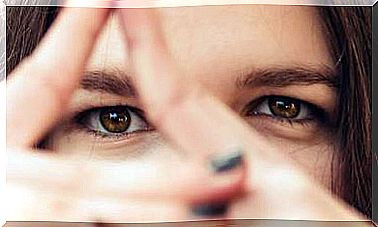Homo Absortus: Where Are So Many Screens Leading Us?
In our use of digital technologies we risk our human essence: talking face to face, thinking clearly, connecting with nature.

Marta and Eva are together in the coach, each listening to music on her headphones. They do not speak to each other, they communicate by typing messages, without looking at each other. Andrés is sitting by the window, which opens to a cloudy sky. Her friend Monica asks her if it’s raining. He, without looking up from the computer, enters a web page and responds: “yes, it rains.”
Emilio sleeps with his mobile under his pillow so as not to delay in answering the messages that may arrive… The names are made up, but the stories are true. Entire families who do not speak in the restaurant, each one immersed in their particular device connected to the internet. Parents who ignore their babies, absorbed in their screens.
People walking down the streets with their heads down, hanging on to their cell phone and little or nothing about the place and the present moment, including other passers-by and traffic.
The digital revolution is a source of indisputable wonders, no one can doubt it. It facilitates the search for information in a formidable way – even if it has to be collated later – and it frees us from many mechanical tasks.
But precisely because of its extraordinary power, it has a great ability to dazzle us and generate psychological addiction.
Digital distractions: from Homo erectus to Homo absortus
Where are we going? Is it not worth wondering if something is radically changing our way of being in the world ? The Homo sapiens sapiens has been characterized by their ability to think lucidly, to talk face to face, walking upright (hence called Homo erectus to an ancient relative).
Is a Homo absortus now appearing (distracted, dazzled by the screens) that abandons the upright posture by walking head down in front of the screen?
The technological logic takes the wheel: do we really know where it leads? Have we not inadvertently started an unusual experiment with the human condition?
The philosopher Blaise Pascal saw the root of unhappiness in not knowing how to be at peace with oneself in a room. Three and a half centuries later, far from having learned to be at peace with ourselves, we have invented increasingly sophisticated and seductive distractions.
Being still in a room today means, most of the time, that the attention has fled from the here and now and is absorbed in a screen.
A scattered mind is an unhappy mind
The unbridled growth of distractions takes us away from full presence and makes our attention tend to shorten and destabilize. And this is beginning to show in all kinds of professions and fields.
A Microsoft study in Canada, titled Attention Spans (“attention spans “), confirmed that there is a general decline in attention, especially among the very young.
And it provided a revealing fact : the average attention interval in a person in the year 2000 was 12 seconds, but in 2013 it had dropped to 8 seconds, while the average of the golden carp (the common reddish fish in aquariums) is of … 9 seconds.
In 2010, an article in the prestigious journal Science concluded, as its title said, that A wandering mind is an unhappy mind (“A wandering mind is an unhappy mind”). The less stable our attention is, the less things flow, because without attention there can be no excellence in any task, physical or mental.
The loss of attention also deteriorates the inner life, making us more dispersed. Another study, in the same journal, correlated the use of Google with memory loss. And the same applies to the mental faculties in general, as the psychiatrist Manfred Spitzer argues in Digital Dementia (Ediciones B).
Mental performance is declining
The brain is an extraordinarily dynamic organ. As with muscles, its capacity depends on its use: it is transformed at the cellular level depending on everything that attracts our mind and our action.
To the extent that many digital media save us mental effort, they also diminish our capacity for mental performance. That is why there is no digital whiteboard that can substitute for learning to write by hand, with all that it has of skill training and personal expression, nor is there a digital prodigy that can substitute for the empathy of a teacher.
In higher education, both in classrooms and when students are trying to study, chatting and other cyber seductions often hamper learning. Only students with strong willpower use the internet really effectively, without falling into a maze of distractions.
Bodymind or finger screen? You choose
This magazine was born (whoever writes this saw it born) with the name of Cuerpomente because we know that physical health and mental health go together.
The brain is a relational organ that is fully integrated into the rest of the body. The mind is not an abstract veil that inhabits disembodied spaces. That is why the activity of the body is very important in brain development, and especially of the hands, truly prodigious tools.
The brain of a child is little or nothing develops before a screen, while other develops actively using hands, building structures actual pieces of wood or other materials, feeling its weight, its texture and its nuances, or drawing with pencils , or playing with dolls in the real world with no limits other than those of the imagination.
Digital comes from digitus, finger. But the digital world has nothing to do with the use of the fingers by a craftsman or an artist. A pianist employs the whole of the hand, fine-tuning the strength and precision of each micromotion to the extreme.
In front of the screen, only the contact with the fingertips is required, regardless of the quality of the contact. The heart of human activity ceases to be in the heart and migrates to the fingertips. And something is lost. Outside the internet there is also life, even more prodigious.
It is not free, the product is you
Free services move money somewhere, be it with the sale of data from the trail that we leave, be it with explicit or covert advertising. Are you aware of it and do you take action on it?
“Interestingly,” some Silicon Valley designers do not let their children use cell phones and games because they know they are designed to be addictive and do not stimulate creativity.
One of these talents, Tristan Harris, has suggested an ethical code for the digital world that puts respect for people above manipulation. One of his proposals is a kind of Hippocratic oath that obliges software designers to act responsibly regarding the psychological implications of their products.
And think that it is possible to disconnect. Enric Puig, professor of Philosophy, is the author of The Great Addiction (Ed. Arpa), which collects the testimony of ten professionals who decided to disconnect and have fuller lives in the real world (institutinternet.org).









